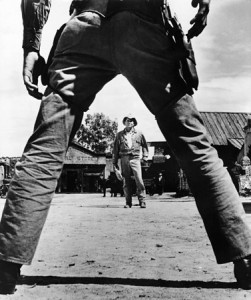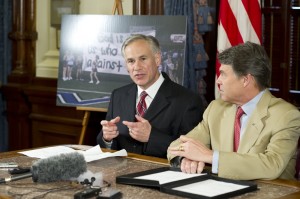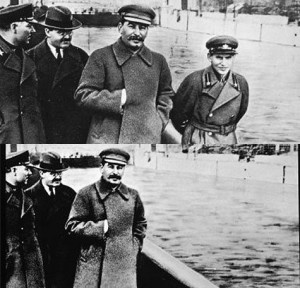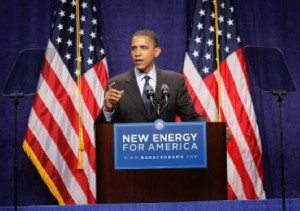Greenhouse Gases
New National Report: Texas is Source of Over 50% of Total US Fracking Pollution
 While most of the national publicity surrounding fracking over the past couple of years has involved documenting its encroachment into the Midwest and East Coast, a new first-of-its-kind report demonstrates why Texas is still the center of the oil and gas industry's universe.
While most of the national publicity surrounding fracking over the past couple of years has involved documenting its encroachment into the Midwest and East Coast, a new first-of-its-kind report demonstrates why Texas is still the center of the oil and gas industry's universe.
Last week the Environment America Research & Policy Center released "Fracking by the Numbers: Key impacts of Dirty Drilling at the State and National Level." As far as we can tell, it's the first systematic collection of quantifiable state-by-state data on the environmental costs of fracking in the entire US – the amount of water used in drilling operations, the amount of air pollution produced, the amount of acreage devoted to leases, etc.
Of course, the numbers all come from either the annual self-reporting industry performs for state and federal regulators, or those regulators themselves, so there's a good chance they're being under-estimated. Nevertheless, the total numbers are still huge and shocking. And what really catches the eye in the state-by-state breakdowns is just how much the operations around us here in Texas contribute to those huge and shocking numbers. We're not just the Belly of the Beast. We're the belly, upper and lower intestines, bowels, and open-throated mouth of the beast.
Number of Wells:
Of the almost 82,000 wells drilled across the country since 2005 (when the Energy Act with the "Halliburton Loophole" included was passed and signed), fully 34,000 have been drilled in the Lone Star State. The second closest state is Colorado with a little over 18,000.
Think things have slowed down and moved elsewhere? Of the 22,300 wells drilled since 2012, 13,500 of them have been in Texas. Colorado again comes in second with 1,900.
Acres of Land Damaged:
130,000 acres out of a US total of 360,000 acres. Colorado is second with 50,000.
Amount of Water Used
Out of a national total of 250,000,000,000 gallons of water used to frack wells, Texas accounts for 110,000,000,000. Pennsylvania is second at 30,000,000,000 gallons.
Amount of Waste Water Produced
Out of a national reported total of 280,000,000,000 gallons (that's 280 billion) of unusable toxic wastewater that needed to be disposed of permanently in injection wells, Texas accounts for 260,000,000,000 gallons. North Dakota is a distant second with 12,000,000,000.
Air Pollution
None of these figures includes totals from other kinds of facilities in the gas cycle, like compressors or pipelines, or storage tanks – just drilling pad operations.
Particulate Matter
Approximately 8,000 tons in Texas out of nationwide total of 13,000.
Nitrogen Oxide (smog-forming)
100,000 tons in Texas out of 170,000 for the entire US.
Carbon Monoxide
153,000 tons in Texas out of a US total of 250,000 tons.
Volatile Organic Compounds (smog-forming and toxins)
14,000 tons in Texas out of 23,000 nationwide.
Sulfur Dioxide (acid rain, respiratory irritant)
300 tons in Texas out of a total of 600 tons nationwide.
Greenhouse Gases
40,000,000 tons in Texas out of a US total of 100,000,000.
When a single state accounts for more than half of the wells, the waste water, and the entire country's air pollution burden from fracking, you understand why campaigning against the industry's practices in Texas is the political equivalent of fighting behind enemy lines. It makes recent victories like the defeat of the Trinity East permits and the adoption of a tougher draft Dallas gas ordinance all the more remarkable, and important.
Beginning in 2006, many of us were caught off-guard by the invasion of wells that swept eastward into the metropolitan DFW area. We didn't know enough to know what questions to ask, or we didn't want to ask them. Now, living in the largest urban gas play in the US, and inventorying these kinds of mind-numbing statistics, we don't have any excuses. Fracking represents one of the most profound environmental and public health challenges ever to confront DFW or Texas. The most important question now is what we intend to do about it.
Ed Ireland is Down to the Scientific Stems and Seeds
 Maybe the Barnett Shale Energy Education Council thought it was being cute by sending their latest "study" out on the day Gasland II had its theatrical premiere in North Texas.
Maybe the Barnett Shale Energy Education Council thought it was being cute by sending their latest "study" out on the day Gasland II had its theatrical premiere in North Texas.
Or maybe they knew what an egg they were laying. It's a basic rule of PR that you don't send things out on a Friday that you actually want people to see. And if you were the industry, even you might be a little embarrassed about this thing too. As of Tuesday afternoon, the group was so proud of it, they hadn't even posted it on their on website. As far as we can tell, it's details have only appeared within stories from in-house publications like the Star-Telegram.
Imagine the pitch on paper, if there was one. "We'll fund our own research so that it'll have maximum credibility. And since we can't find a reliable academic institution to do it for us, we'll have to contract to something called ToxStrategies out of Houston. We won't do any new research at all. We'll just regurgitate the state's own lame monitoring data. We'll take the seven stationary monitors that have screened for air toxics in North Texas – you know, the ones that ony take samples every sixth day (when they were operational), and let that represent the entire Barnett Shale. We'll only look at some Volatile Organic Compounds readings. We won't connect any gas drilling or production taking place to a timeline to show what activity was actually going on around these monitors, so they'll be no way to correlate our presence with increases or decreases in pollution. And of course, since we're using TCEQ monitoring data, we can also use their unsupported claims that there are "safe levels" of benzene and other carcinogens when the most recent science is in direct opposition to that discredited idea."
And that's about it. Old TCEQ monitoring data that may or may not have any correlation to drilling activity is used to once again say, "Look Ma, no health effects!" Think of it as the "Titan Study Part 2."
Industry and regulators always want to start at the smokestack end of things and draw assumptions of human health from that end. As long as pollution is below certain levels that they just know are "safe" (until one day' they're not), they connect the dots and say there is no human harm occurring. They really don't want to actually go out and test that theory among real people on the ground living next to these facilities. They might find it doesn't hold up very well. That's why they want to stick to reviews of monitoring data.
Citizens always want to start from the other end – real life. Let's test that hypothesis about safe levels of poisons and see what the rate of asthma, cancer, miscarriages there are in the neighborhoods around and downwind of these sources. Are the rates of illness higher or lower the closer you get to a facility? Is there any correlation between the types of illnesses and any chemical in the atmosphere or water, no matter how safe the exposure level? And you know what, when it comes to fracking, there seems to be a lot of difference between what the studies that rely on real life say versus what the studies that rely on measurements say, like this "new' old effort released about a quarter to five on a Friday afternoon.
But hey, It can't be the BSEEC without the BS.
Big D’s BFD
 Did you feel the ground shifting under your feet yesterday around 5 pm? It was another one of those local earthquakes caused by fracking. The epicenter was Dallas City Hall. Damage to the gas industry's rhetoric and credibility was extensive.
Did you feel the ground shifting under your feet yesterday around 5 pm? It was another one of those local earthquakes caused by fracking. The epicenter was Dallas City Hall. Damage to the gas industry's rhetoric and credibility was extensive.
By a vote of 14 to 1, the Dallas Plan Commission pronounced the permissive "Fort Worth Model" of regulating the drilling and production of natural gas in the Barnett Shale dead. The passing was definitive. As John Cleese might say, "This paradigm is no more…it has ceased to be…this is an EX-paradigm."
It didn't go down without a fight. Up until the very final hours of debate over language in the City's proposed new gas ordinance, staff was still offering weaker versions of rules to Commission members because "that's the way Fort Worth did it." They were all rejected in favor of stricter standards as part of what has the potential to be the most protective ordinance in the Barnett Shale.
Now all we have to do is get eight Dallas City Council members to help us realize that potential.
The draft passed yesterday isn't 100% of what residents want, and in one case doesn't even match the level of protection Dallas itself started out with in 2007. It still provides paths through the bureaucracy for drilling in parks and flood plains, instead of outright bans, and despite staff assurances, the chemical disclosure language isn't foolproof. But to see it only through the lens of what it's not yet doing is to ignore the huge impact of what it already does. Coming from the largest city in the Shale, the Dallas draft immediately offers a modern, tougher alternative to Ft. Worth's submissiveness for dealing with the problems of mining gas in urban environments. To quote our Vice-President, it's a B.F.D. Some of the highlights include:
1) A 1,500 property line-to-property line setback from neighborhoods and other protected uses, matching the most protective setbacks in the Barnett Shale. It can only be reduced to a minimum of 1000 feet with a variance, and that's only possible with 12 out of 15 council votes. Notice of any permit must go out in English and Spanish to all mailing addresses within 2000 feet and the applicant must hold a neighborhood meeting where the project is fully explained.
2) Electrification of all motors and engines on a drilling site. If operators want to make an exception and use combustion engines, they have to show why electrification isn't feasible, and the City has to agree.
3) Tough restrictions on where gas compressor stations can locate – only in heavy industry zoning districts, with the same 1,500 foot setbacks from neighborhoods and all other protected uses, fully enclosed, and they must use electric engines, not diesel or gas. Thanks to some quick pushback by residents and their allies on he Commission, we were able to win back all the rules that staff had excluded in their first take only 24 hours before the vote.
4) A ban on any injection wells in the City of Dallas.
5) A ban on fracking waste pits.
6) Requirements for a road repair agreement before a permit is even considered. This is above and beyond any other insurance or bonding requirement.
7) A recommendation to the Council that it establish a local air pollution off-sets program that would include natural gas facilities. Such a program would be the first of is kind in the nation and close a Clean Air Act loophole that exempts these facilities from participating in the federal off-sets program for smoggy "non-attainment areas."
8) Baseline testing of water, soil, air, and noise at every proposed site.
9) Individual non-toxic "tagging" of all fracking fluids used. Every operator will be required to put their unique chemical signature within the concoction they're pumping into the ground so that if any of it goes where it shouldn't, the offending well can be identified. It's DNA testing for fracking.
10) A recommendation to the Council that during drought conditions, it either charge substantially more for city water that's being used for fracking, or ban the use of city water for fracking all together.
11) A recommendation that the Council demand an additional letter of credit from operators beyond any other insurance or bond to cover uninsurable intentional acts of contamination, i.e. dumping waste into the Trinity River.
We're not in Cowtown anymore.
(There's not an online version of the final language up yet. We'll let you know when there is so you can look this thing over yourselves).
City attorney Tammy Palomino, always a reliable source of information, stated on the record that she believed the draft's language about chemical disclosure would cover all trade secrets, but we're not so sure. That's why we'll be asking the Council to add five simple words to this section that Ms. Palomino didn't: "with no exceptions for trade secrets."
Instead of banning drilling in the floodplain, the proposed ordinance makes it impractical, though not impossible. An operator would have to get a fill permit from the city, and approved by the Army Crop of Engineers, to build a mound that would elevate the entire drilling pad site out of the floodplain. Anyone who's seen the footage from Colorado's flooded gas plays over the last couple of weeks can identify the folly of this approach. What's to keep flood waters from eroding the elevated mound and taking the entire pad site down stream? Only the lack of a kind of levee-to-levee flood we've seen in Dallas before.
Park drilling provided the day's lesson in pretzel logic. A "protected use" includes a recreation area, "except when the operation site is on a public park, playground, or golf course." Then it's perfectly fine to have rig next to the swing set. Got it?
This is less protective than the original Dallas Park decision that preceded the notorious Suhm secret agreement with Trinity East. It called for the leasing of a park's mineral rights but banned surface drilling in any park. You could go under but not on. That's still the most sensible compromise but it went floundering for support yesterday.
Instead, the Park Board will have to request the City Council to hold "Chapter 26" public hearing, after which there must be a 3/4 vote of approval by the Council that officially concludes there's no other possible feasible use for the park land other than gas drilling.
Listening to the comments from many Commissioners right before the vote, one got the feeling that if they had to do it all over, they might not be so equivocal. Nevertheless, they all voted for the more convoluted approach. It's the most flawed part of the ordinance, especially in light of the outcry over allowing any drilling in any public park during the Trinity East fight.
With those exceptions, it was a banner day for residents who've been fighting this good fight for over three years now. It was the kind of day that after Trinity East's main lobbyist whined that the company just couldn't get the electrical hook-ups they needed (in the middle of Northwest Dallas by a major Interstate) during the public hearing right before the final vote, an influential conservative Commissioner successfully moved to amend the completed draft to make the section on mandatory electrification of compressor stations stronger. Ouch.
It was the kind of day when the only ally industry could muster among the 15 Plan Commissioners was the sometimes coherent Betty Culbreath, Dwaine Caraway's brand new gift to Dallas residents. Culbreath said she couldn't vote in conscience for a document that required so much from industry. She felt so passionate about the issue, she missed most of the Commission workshops over the past month or so where the ordinance language was debated. It'd be laughable except the council member who appointed her is now the Chair of the Council's Environmental Committee.
There's no official news about the timeline or process the Council will use to consider the draft now that it's been delivered to them. Despite the mostly winning day residents had on Thursday, its sobering to remember that we only got six votes to deny the Trinity East permits. We need at least two more to make sure this good ordinance stays intact, or gets even stronger.
Such a lopsided Commission result gives us a great running start to get those votes. Backsliding by Council members will be hard to pull-off publicly, although let's face it, some seem immune to embarrassment on this issue.
Cowtown circa 2008 will always be the industry's preferred template for regulation, because they mostly wrote the rules. Residents in the Shale now have a much more citizen-friendly 2013 Big D model they can use for counterpoint – if we can win ACT III of the Dallas Gas Wars.
Dallas City Staff Trying to Pull a Fast One on Eve of Final Gas Ordinance Hearing and Vote
 Thursday's Dallas Plan Commission hearing on a new gas ordinance just got a lot more interesting. At 12 noon today, citizens received the staff proposal for language dealing with compressors stations in Dallas – among the largest, most polluting, most dangerous kinds of facilities in the natural gas fuel cycle.
Thursday's Dallas Plan Commission hearing on a new gas ordinance just got a lot more interesting. At 12 noon today, citizens received the staff proposal for language dealing with compressors stations in Dallas – among the largest, most polluting, most dangerous kinds of facilities in the natural gas fuel cycle.
Staff is attempting to carve out more areas of the cities where compressors can locate, as well exempt them from the already-approved 1,500 foot setbacks from neighborhoods required for drilling wells themselves, as well as exempt them from the vote two weeks ago to require mandatory electrification of all motors and engines.
In other words, city staff probably has a proposed compressor in mind – maybe in the Northlake development or elsewhere – they're trying to write the rules around – just like they tried to do for the Trinity East permits.
What are the changes staff is recommending be adopted tomorrow by the Commission?
1) Staff wants to allow Compressors to call themselves"light industry" and locate in more places in Dallas
Instead of confining them to only Industrial Manufacturing Zoning districts, as was voted on by the Commission two weeks ago, staff has gone ahead and included a brand new category of zoning that would also allow compressors – something called "Industrial Research" districts.
In Dallas, an Industrial Manufacturing district is for "Heavy Industrial Manufacturing Uses with Accompanying Open Storage and Supporting Commercial Uses." That fits compressor stations to a T, since they can emit up to 250 tons per year of air pollution with a "Standard Permit" from the state. They're also subject to tremendous pressures and explosions. They belong in a heavy industrial district.
According to the City of Dallas' own zoning code, the "Primary Use" of facilities in an Industrial Research district is "Research and Development, Light Industrial, Office, and Supporting Commercial Uses."
We know from experience that the only research going on in or around compressor stations in North Texas are experiments on the public health. Staff gives no rationale for allowing compressors to operate in areas of light industry – like warehouse districts – where they would instantly become the nastiest neighbor.
This last minute change is reminiscent of what staff was doing to protect the Trinity East permits before anyone knew about the secret agreement former City Manager Mary Suhm made with the company. Could there now be another company or site the staff is trying to leave open for compressors that wouldn't otherwise be available by sticking to just the Industrial Manufacturing districts the Plan Commission voted for two weeks ago?
2) Staff wants to exempt Compressors from the 1,500 foot setback already agreed to for drilling sites.
Instead of using the distance between operations and neighborhoods the Plan Commission has already agreed is appropriate for well pad sites, staff wants to reduce the distance between larger, more polluting, more permanent compressors stations to just 1000 feet.
This makes no sense at all. For all the real and potential problems at a well drilling site, they're miniscule compared to the pollution footprint of a compressor station. Moreover, the most intense potential releases of air pollution occur at a well site over a period of weeks, or, at most months. Once compressors are built, they're staying put and operating 24/7. If you have a 1,500 foot setback protecting neighborhoods from well sites, shouldn't you also at least provide that same level of protection from a facility that will be pumping out more pollution and also poses a risk of explosion, if not more? But, for some reason, staff wants Dallas residents to be less protected from these kinds of operations.
We need your help at tomorrow's public hearing tomorrow to argue that we need at least the same setback for compressors as we do for well sites.
3) Staff wants to exempt compressors from the requirement to electrify all engines and motors
At their September 12th meeting, the Plan Commission also voted to require electric motors on all gas production facilities. No distinction was made between drilling site motors and generators, and compressors engines. Industry has argued that they can find electric alternatives to every combustion engine including the giant, locomotive-sized engines that run compressors. Since compressor stations are among the largest industrial air polluters, replacing diesel engines with electric ones makes even more sense in a "non-attainment area" for smog like DFW than requiring electrification of all the motors and engines on a drill pad site.
The staff's recommendation that compressors be exempt from required electrification looks to be another special favor staff wants to grant the industry.
These changes, along with others that we're just now receiving word about, are serious enough to cause us to change our plans for tomorrow's public hearing.
Citizen groups be hosting another pre-hearing press conference at 1:00pm in the Flag Room outside the City Council chambers on the 6th floor where we'll be able to itemize the most severe challenges to our goal of getting the most protective gas ordinance in North Texas. THIS IS THE LAST PUBLIC HEARING ON THE ORDINANCE. WE NEED YOUR HELP. Please be there at 1 pm to hear what's at stake and what we need to be calling for in our testimony tomorrow afternoon.
Now is not the time for complacency…..
What Wednesday’s Vote Means for Dallas, the Shale, and the Rest of the Universe
 Wednesday's vote on the Trinity East permits was not only an historic one. It's a long overdue turning point.
Wednesday's vote on the Trinity East permits was not only an historic one. It's a long overdue turning point.
The bloody knuckle political fight over urban gas drilling in Dallas in 2013 is the fight local environmentalists owed Fort Worth in 2006. Our collective failure in Cowtown gave the gas industry a too-friendly template for every other DFW city that's come after Fort Worth's gas rush.
Wednesday that template got tossed. A clearly frustrated Trinity East lobbyist complained that the company wouldn't even have had to participate in a Council hearing like this one if the same permits were being sought in Fort Worth. Welcome to Big D.
We can't undo old wrongs, but we can start changing the pattern of behavior that keeps churning out new ones. Wednesday's vote by the Dallas City Council was, by far, the highest-profile rebuke of the gas industry in a region it thinks its owns lock, stock and barrel. As he Dallas Morning News put it, "the defeat could be the death knell for natural gas drilling in a city known around the world for its ties to the petroleum industry." Politically, we aren't in Fort Worth anymore.
So what else is new after yesterday? From micro to macro:
From just a basic civics perspective, it's hard not to be impressed with the job that residents did in mobilizing themselves into a persistent and contentious force for change. This wasn't just an environmental victory. It was a victory for grassroots organizing. Residents had to fight not only the gas industry, but Dallas City Hall staff and the Mayor, who were all doing their best to rig the process in Trinity East's favor. Moreover, they had to fight on multiple fronts at the same time, both within the regulatory process to deny the permits outright, and in the Spring's city council elections to make sure they had the votes once the permits got to the horseshoe on Marilla. And oh yeah, they've had to put together and lobby for the toughest regulations to be included in a new ordinance being written, also at the same time.
That said, the last nine months have seen the biggest show of green political muscle in the city's history. If you total up the numbers of people involved, throw in a scandalous secret memo that brings down a City Manager, add triumphs in half the council elections you enter, and pile on winning-over the local conservative daily newspaper, then there's just no comparison. The momentum carried into Wednesday's meeting when opponents got two more votes than the four that were needed to block the permits, for a total of six. That's a far cry from the two or three everyone was sure about when this started last winter. We've seen the Dallas environmental movement grow up right before our eyes into something nobody, including environmentalists, thought it was capable of being when this started.
The fruit of this new growth was on display at City Hall (Coverge from the DMN, KERA, CultureMap and the Observer). There's no precedent for the kind of coalition that turned-out, except maybe the anti-Trinity Tollroad coalition that almost upended the Citizens Council's plans for solar-powered water taxis and riverside freeways in the 1990's. There were West Dallas residents from La Bajada, Oak Cliff dwellers, North and East Dallas homeowners association presidents, Students, teachers, professionals, gas lease owners, environmentalists, neighborhood activists, an Irving city council member, young mothers, young grandmothers and everything in between. Reflecting this diversity was a Council coalition that included both Hispanic Council members, Adam Medrano and Monica Alonzo, African-American Carolyn Davis, newcomer Philip Kingston, and stalwarts Sandy Greyson and Scott Griggs. If this alliance of interests holds together, it stands a very good chance of getting a strong new ordinance in the coming months.
And what about that new ordinance? With the old business of Trinity East now concluded, all attention is directed at Dallas writing and passing the most protective gas drilling ordinance in the Barnett Shale by the end of the year. The chances of that happening went up dramatically with Wednesday's vote.
One of the most unexpected results coming out of the confrontation was Mayor Rawlings' seemingly blunt declaration that he was four-square against urban drilling in Dallas. Saying the city could afford to be picky about the kind of development it seeks, he stated he didn't think gas drilling was a good match for Dallas and looked forward to passing a strong new ordinance. We'll see. Actions speak louder than words, and so far the Mayor's actions on this issue have all been in service to approving the Trinity East permits. With that fight resolved, can he be trusted to embrace a new philosophy? We'll be able to tell soon enough with a draft ordinance due to be delivered by the Plan Commission to the Council in late September. At any rate, his public confession on Wednesday is another sign of how far the Dallas movement has come. It's impossible to imagine Fort Worth Mayor Betsy Price uttering the same words.
It also gives the new members of the City Council some cover to vote for tougher regulations as well. Rumor has it that Jennifer Staubach-Gates was agonizing over the Trinity East vote even as she entered the Council Chambers. She eventually voted with the Mayor but as an ex- school nurse who's dealt with asthmatic kids firsthand, she's concerned about air pollution and other public health consequences of fracking. The Mayor's coming out against drilling in Dallas may embolden her and others to get on the band wagon. Rawlings' statement also sets a high bar for the slew of Mayoral candidates coming up in the next election cycle.
Residents now must focus on the last two Plan Commission meetings and hearings that are deciding what kind of new gas drilling ordinance Dallas will write. And they represent very full plates of issues indeed:
On Thursday, September 12th, at 8:30 am the Commission will begin work on the topics of "Air Quality," "Water," "Pipelines" and "Compressor Stations" in their morning workshop. At 1:30 pm that same day they'll get around to holding another one of their unique (anti-public) public hearings at City Hall on those same subjects. It's vital that residents remain plugged into this process and show up to speak on these incredibly important issues.
Just as opponents all got behind the idea of 1,500 foot setbacks and made it a mantra, we no need to coalesce around three or four central and simple concepts for the 12th including: 1) Air Pollution Off-sets, 2) Special Zoning Districts for Compressors, and 3) much higher water rates for taking water permanently out of the hydrological cycle.
– Off-sets would require that gas operators estimate how much new greenhouse gas (GHG) pollution they'll emit into the air every year based on EPA numbers and their own self-reporting, and then off-set those increases in air pollution by paying for pre-approved air pollution control projects in Dallas that would reduce pollution. If you expect to release 5 tons of emissions from your gas operations, you will have to pay for reducing five tons of air pollution in the city by electrifying a car fleet, improving energy efficiency measures in homes and buildings, putting more bikes on the street and so forth. In this way, off-sets also act as a strong incentive to decrease emissions as much as possible at the sources themselves. The less you pollute i nthe first place, the less you have to pay to off-set that pollution.
Unlike every other heavy industry that does business in a smog "non-attainment" area such as DFW, the gas industry is exempt from having to do this at the federal level. So we want Dallas to be the first city in the nation to fix that loophole by requiring local off-sets. This would be a precedent-setting piece of policy-making that citizens could then take to other Barnett Shale cities and counties. A grassroots regional policy could grow out of the Dallas template – much like it did when Dallas passed the first "green cement" procurement policy in 2007. That campaign lead to the eventual closing of all seven old wet kilns in Midlothian and millions of pounds of air pollution permanently eliminated. It forced the cement industry to clean up. We want to do the same thing with the gas industry and offsets.
This new policy could be the beginning of a tool that we can use to significantly reduce gas industry air pollution, not only in DFW, but in smoggy metro areas throughout the U.S. that now also host gas drilling, like Denver, Pittsburgh, and Los Angeles.
– Compressor Stations are the big league polluters of the natural gas fuel cycle, running 24/7 365 days a year and emitting voluminous amounts of air pollution. Some compressor stations release more Volatile Organic Compounds than the Midlothian cement plants and they're huge greenhouse gas polluters. A recent study from the Houston Advanced Research Center found that a single flare or compressor could raise downwind smog levels by 3-5 parts per billion or more within five miles. Compressors should be required to get their own Special Zoning District with strict rules on sound, pollution and setbacks.
– Water is precious in NorthTexas and industries that take it permanently out of the hydrological cycle should pay more than those that don't. A lot more, because it means we have to go out and find that water anew. Likewise, during drought conditions, water should be for drinking, not fracking. It's critical we make the industry pay for the real costs of using so much of this absolutely necessary resource and then throwing it away for good down a hole.
On Thursday September 26th the Plan Commission will hold its final public hearing on the new gas ordinance. Then it will vote on a draft to send the City Council. Again, citizens need a good turnout for sending this document off, whether it has everything in it we want, or it's lacking in some important way. We need to be there.
We are only these two September hearings away from showing up at the Dallas City Council with the most protective gas drilling ordinance in the Barnett Shale and providing the region and the country a new alternative for the obsolete Fort Worth model.
If you came down to City Hall, if you e-mailed, or phoned or wrote – Thank you for your contribution to the fight. It took exactly the amount of effort you and everyone else gave to make Wednesday's victory happen. It will take it again to pass a great ordinance.
But stick with us. We're making history.
Final Trinity East Gas Permit Showdown: Send an e-mail Now, Testify on Wednesday, and Then Celebrate After the Historic Vote
 This Wednesday, August 28th, sometime after lunch, the Dallas City Council will finally decide the fate of the three Trinity East gas permits that have refused to die since they were foisted on residents by Mayor Rawlings just after Thanksgiving. This looks to the definitive last nail in the coffin of the "Zombie Permits" that are so bad, even the considerable contorting of the permitting process by the Powers-That-Be could not save them from not one, but two denials by the City Plan Commission.
This Wednesday, August 28th, sometime after lunch, the Dallas City Council will finally decide the fate of the three Trinity East gas permits that have refused to die since they were foisted on residents by Mayor Rawlings just after Thanksgiving. This looks to the definitive last nail in the coffin of the "Zombie Permits" that are so bad, even the considerable contorting of the permitting process by the Powers-That-Be could not save them from not one, but two denials by the City Plan Commission.
Council members Adam Medrano, Scott Griggs, Philip Kingston, and Sandy Greyson have all committed to voting against the permits. Normally that would mean defeat in a 15-member Council, but since the Plan Commission voted to deny, the rules say it takes a super-majority of 3/4 of the Council to overturn such a denial. With these four council members on our side, we have exactly the number to prevent a super majority of approval, with no room to spare.
So we need your help again to make sure this happens and that this is the last time we call folks out to fight these very bad permits. We're asking you to do three things:
1) Spend 30 seconds sending an e-mail to all 15 Dallas City Council members that urges them to vote against the permits on Wednesday. Since we only have about 24 hours left before the vote, please do this now by stopping by our "Featured Citizen Action" page here.
This form e-mail has some good talking points for Wednesday but you can also add your own comments at the end if you like.
If you don't want to use that system, please feel free to compose your own e-mails and send them to the council at these addresses:
jerry.allen@dallascityhall.com, District11@dallascityhall.com, jennifer.gates@dallascityhall.com, monica.alonzo@dallascityhall.com, tennell.atkins@dallascityhall.com, dwaine.caraway@dallascityhall.com, carolyn.davis@dallascityhall.com, sandy.greyson@dallascityhall.com, scott.griggs@dallascityhall.com, vonciel.hill@dallascityhall.com, sheffield.kadane@dallascityhall.com, adam.medrano@dallascityhall.com, rick.callahan@dallascityhall.com mike.rawlings@dallascityhall.com, philip.kingston@dallascityhall.com,
But time is of the essence. Please do this right now. Let's make sure they know we're still watching them.
2) Come down to City Hall at 12:30 pm and be prepared to tell the City Council why these permits should be denied. Since the permits are regular agenda items, anyone can can sign-up and speak about them for 2 minutes each. We need a lot of speakers to balance out what we expect to be another attempt to turn out folks from the industry. It's late-breaking concern over what Dallas is doing is the highest compliment to the effectiveness of your work so far. Don't let it go for naught by taking this last piece of action for granted. This is the first vote by a Dallas City Council on gas permits. It's the first time any of these Council members will have voted on anything to do with gas drilling. It's a landmark vote. We need you to be there to demonstrate not only your widespread opposition to the Trinity East permits, but your support for a much stronger gas ordinance. This is the same council that will be receiving the final draft of the new gas drilling ordinance in just a month.
With these Trinity East permits, there is always the chance of last-minute skullduggery by the Mayor and staff to try and win approval by applying heavy pressure about lawsuit threats etc. We need you there in numbers to prevent such a last-minute move from being successful, or as a last-resort, to raise Holy Hell if it does.
3) Come Celebrate a Citizens Victory. After what we hope will be a victorious vote Wednesday afternoon, you're invited to drive a few blocks down from City Hall to a nice little bar and restaurant called Lee Harvey's (1807 Gould St Dallas, TX 75215 214-428-1555) to celebrate. Our fight against these permits has seen the modern maturation of the Dallas environmental movement as a force to be reckoned with. We've created the most successful citizens coalition in recent memory. This has been, as the Morning News stated, one of the most important zoning fights in Dallas history, not to mention public health and safety. These kinds of victories are too few and far between not to be officially recognized. We know you've spent a lot of time fighting these permits, now please come spend an hour or so reveling in your success. You deserve it.
However, If something unexpected does occur and somehow the permits are still alive on Wednesday afternoon, we'll need a watering hole close by to debrief and plan, so come on over and plot with us win, lose or draw.
To recap, three easy steps to killing the TrinityEast zombie gas permits:
1) Send an e-mail to the Council right now.
2) Bring your butt down to the 6th floor Council chambers at City Hall again at 12:30 pm Wednesday and show this City Council these permits and their scandal still matters to you. Don't let industry out-organize you now.
3) Bring you butt over to Lee Harvey's after the Council's vote to celebrate or commiserate.
See you on Wednesday. Thanks for all your effort on this issue.
Dallas Gas Wars: Residents 1, Joe Barton 0
 Can we just admit up front that we're disappointed The Man himself didn't show up to personally lead the Charge of the Light Crude Brigade at yesterday's Dallas Plan Commission public hearing on a new gas drilling ordinance? We thought after Wednesday's passionate personal pleas for turnout at the Society of Petroleum Engineers' monthly meeting, Ol' Smokey Joe would surely have the courage of his convictions. Sadly, no.
Can we just admit up front that we're disappointed The Man himself didn't show up to personally lead the Charge of the Light Crude Brigade at yesterday's Dallas Plan Commission public hearing on a new gas drilling ordinance? We thought after Wednesday's passionate personal pleas for turnout at the Society of Petroleum Engineers' monthly meeting, Ol' Smokey Joe would surely have the courage of his convictions. Sadly, no.
Instead, he left the righteous fight against radical environmentalists to seven or eight heavily-outnumbered industry engineers and attorneys who showed-up and told the Commission that a 1,500 foot setback was tantamount to a ban on drilling in Dallas. Almost to a man, (for they were all men) they accused the extremists of persecuting a trouble-free, non-polluting industry that was guilty of none of the awful things being said about it by their opponents. In particular, they sought to tag the environmentalists as uninformed, as out of touch with research and the facts, as hypnotized disciples of Josh Fox. In doing all this however, they could muster no science of their own.
Given over 20 minutes of time to make their industry's case, not one engineer or attorney working within the industry cited even one peer-reviewed, journal-published health study to support their claim of benign impact on public health or the environment. Not a one.
For some time, and through many a fight, we've seen a common thread of industry criticism of the uninformed civilian. It has its roots deep in the pat-them-on-their-well-meaning-head sexism that greeted women like Rachel Carson and Lois Gibbs. It's grown to include anyone that challenges the industry's own cost-benefit analysis. It accuses residents of being "emotional" instead of rational when they disagree with that analysis by asking too many good questions.
And yet…when it comes down to the crunch, it's the industry representatives who appeal to the emotions the most when they raise the flags of jobs and growth and try to get everyone else to salute. It's the industry reps who do the most name-calling and make the most personal charges characterizing their opponents. Call it the Foxifying of industry rhetoric. And it was on full display at the Plan Commission on Thursday. Dallas was denying itself untold riches by effectively sealing off thousands of acres to fracking. It would be a devastating to job growth. No actual studies to prove that mind you, but industry assertions should be treated as facts, especially when they're assertion about economic growth – no matter how self-serving.
There was testimony that parks "are some of the best places to drill." That "there was no way" the industry would ever pollute the air or water. The language was absolutist and, dare we say, non-rational and not supported by the facts. At least, they didn't cite any facts to support those assertions yesterday.
And those radical environmentalists Smokey Joe warned about?
As usual, they included Dallas homeowners association members and presidents, people who owned wells themselves or or leased land for drilling, cancer patients, asthma sufferers, 25 year-olds, 81-year olds, Sierra Club members, Downwinders' board members, long-time Dallas residents and people who just moved here, plus a sprinkling of folks from Farmers Branch, Ft. Worth, Garland and Irving (30 of 35 speakers in favor of a 1,500 foot or more setback gave Dallas addresses) and a lot of women. One of the starkest contrasts between the two sides during the hearing was gender.
And, again, as usual, their representatives did cite studies. Lots of them. Because we've been through this before, because we know we'll be accused of being uninformed civilians, we know what's coming and we load for bear. The most comprehensive epidemiological study in a gas field to date showing increased cancer risks. Check. The most recent CDC study on silica pollution at well pad sites showing ever site tested exceeding federal limits by magnitudes. Check. USGS studies of the small earthquakes caused by fracking and the large ones caused by injection wells. Check and check. Proximity to benzene sources raises Leukemia risks. Check. NOAA study on actual methane releases from gas field being twice industry estimates. Check.
Were there appeals to preserve a good quality of life, clean water and cleaner air? Of course. But in most instances these were backed up by specific facts about fracking that challenged those goals. So that at the end of the day, not only was the Light Crude Brigade outnumbered, they were out-researched by the very bunch of know-nothings they were charging with the crime of misinformation. Most of them women.
That sweetly ironic resonance was the anti-climatic capping of a full day's worth of work for the Commission that included an affirmation of the 1500 foot setback originally agreed to back in June by lunchtime. All of the rhetoric back and forth in the public hearing was over an issue that had been argued and decided behind closed doors in Executive Session some five or so hours before. (You can follow the blow-by-blow live blogging of the Commission's morning meeting at our group Facebook site here, and read accounts of the decision in the DMN, Business Journal, & Observer,)
Winning the second affirmation of the 1500-foot setback at the Commission level now is no small accomplishment, especially since we had staff working against us. Dallas would be the largest city, by far, in the Barnett Shale to adopt such a lengthy setback (Fort Worth has only a 600-foot requirement, with variances even lower than that). As our Vice President might say, it's a BFD.
So if you sent an e-mail to the Commissioners this last week, we thank you very much, because that was the only direct advocacy they saw on this issue from our side before yesterday's decision to stick with 1500 feet was made.
But we've only won this provision as long as we can protect it. That's why it was good to come down to City Hall yesterday and support it anyway. Many of the speakers brought up the example of the last-minute Task Force rollbacks that occurred almost two years ago. With the same staff people who tried to scuttle the 1500 foot agreement still in charge of the ordinance-drafting process and rumors of some vague land swap with Trinity East still floating around, we all need to stay vigilant. And of course, if it reaches the City Council as an official recommendation there's no doubt it will come under fresh attack. But if we can hold it at the CPC, it will make it hard for the Council to change it. That's why it was important to show up yesterday afternoon. Thanks very much to everyone who did.
Another Commission public hearing on the new gas ordinance is scheduled for September 12th in the afternoon – but once again, it's scheduled after the regular zoning cases are heard so no certain start time will be available other than 1:30 pm. It will concentrate on Air and Water Quality issues, as well as compressors – a subject never broached by the Task Force. We'll be working with our allies in the Dallas Residents at Risk alliance to get information on these issue areas to you, so that you'll once again be able to talk circles around the industry. Stay tuned.
And of course next Wednesday, August 28th will see a final vote on the Trinity East permits we've been battling since right after Thanksgiving. Thanks to the work of council members Scott Griggs, and Philip Kingston, who stopped by and gave a good pep talk to the troops before the hearing began, we believe we have the four council votes it will take to uphold the Commission's denial, but we need your help in bringing other, more reluctant members on board the band wagon. Beginning Monday, Downwinders' featured Citizen Action will be e-mails to the Council, urging them to vote to deny the permits.
After Wednesday's expected final Trinity East permit denial at Dallas City Hall, we're going to have a party to celebrate what is among the most important victories for public health and the environment in Dallas history. We don't know where and we don't know when, but such victories are too few and far between not to officially recognize. Please keep your calendar that night open.
Yesterday's Commission vote was a skirmish, inside a battle, inside a larger war with many fronts. But it was a critical skirmish. And residents won. Next week, we'll bury very bad and unethical gas permits that were "a done deal" as recently as March. Then we'll only have the new ordinance on which to focus.
Slowly but surely, we're doing what we said we would – drawing a line in the Shale in Dallas and stopping the steamroller of industry favoritism that's resulted in so much bad policy and public health harm elsewhere in the region. Dallas is becoming the place where the bad stuff stops rolling east and the good-thinking begins rolling back west. See you on Wednesday.
EPA will Be Issuing Power Plant Permits in Texas Despite Greg Abbott’s Campaign for Governor
 There was never really any question, but just in case you were wondering, EPA will indeed be taking over the permitting of power plants in Texas based on new greenhouse gas emission rules.
There was never really any question, but just in case you were wondering, EPA will indeed be taking over the permitting of power plants in Texas based on new greenhouse gas emission rules.
The U.S. Court of Appeals slapped down Texas Attorney General Greg Abbott's recent challenge to the Environmental Protection Agency on Friday, one trying to keep the EPA from considering such emissions when they permit new facilities or approve large modifications on old ones.
City Hall Apparatchiks Rewrite History, Now Say 1500-Foot Setback Vote Never Happened
 Any doubt that Dallas City Hall is more interested in protecting the Trinity East gas leases than Dallas residents as it writes a new gas drilling ordinance was surely removed yesterday when City Attorney Tammy Palomino flatly lied and told City Plan Commission members that they had not decided on a 1500-foot setback, or buffer zone, between homes and other "protected uses," even though they had done precisely that at their June 20th meeting.
Any doubt that Dallas City Hall is more interested in protecting the Trinity East gas leases than Dallas residents as it writes a new gas drilling ordinance was surely removed yesterday when City Attorney Tammy Palomino flatly lied and told City Plan Commission members that they had not decided on a 1500-foot setback, or buffer zone, between homes and other "protected uses," even though they had done precisely that at their June 20th meeting.
Employing the Orwellian language of a Soviet history writer, Palomino simply choose to ignore the results of a decision she didn't like and pretend the vote never happened. She argued that there was "no consensus" on the CPC for a 1500-foot setback – even though that very word was used to describe the results of June 20th meeting by CPC members themselves, as well as the media.
Instead, she handed out an official "summary" of CPC drilling recommendations to-date that not only only didn't include ANY mention of the 1500-foot setback decision, but instead listed a 1000-foot setback limit that had specifically been rejected by the Commission!
That missing footage is critical. 1000-foot setbacks, with a variance (or exception) up to 500-feet, were recommended by the city's gas drilling task force, but we now know those recommendations were tailored to fit the circumstances of the Trinity East lease sites along the Trinity River in northwest Dallas. That is, with a variance that could put wells 500 feet from homes, the Trinity East sites could be approved. With the CPC's 1500 foot-setback, there's only a variance to 1000 feet. That makes it impossible for Trinity East to set up shop where they want. And that's why Palomino deliberately, but unethically, left the 1500 setback out of her "summary."
The problem for Palomino in trying to pull this kind of disappearing act is that there were way too many witnesses to the original vote, including reporters. According to KERA's account "One of the first changes that grabbed consensus of the Plan Commission was an increase to the buffer zone or setback between gas wells and homes, businesses, schools, and recreational areas. Plan Commissioners want 1500 feet, not the 1,000 recommended by the task force." Channel 4 reported the same thing. There's also the fact that the city archives audio tapes of every CPC meeting, and citizens have have begun to videotape the meetings to catch this kind of bullying by staff.
What all of this will show is that on June 20th CPC member Paul Ridley took great pains to clarify that the CPC had indeed reached a consensus that they wanted a 1500 foot setback – considered the most protective setback currently used by any North Texas city. He even asked the question, "Do we have consensus on this?" and heads all nodded and not one verbal objection can be heard – other than from Tammy Palomino – who is stuttering that the city attorneys are going to have to make sure they can do this (no explanation of why Dallas can't). There's no question about what happened.
Which is why even the most cynical observers were shocked at the clumsy effort by Palomino to erase the decision from history by way of her "summary." It's like the City can't pass up an opportunity to create an ethical crisis whenever it deals with the Trinity East leases.
All the video and audio tape is being assembled into a nice neat package for the public and media. The case against Tammy Palomino will be devastating. As a result of her premeditated misrepresentations, Palomino should resign, or at the very least be re-assigned away from work on the new gas ordinance. She's representing Trinity East in these proceedings, not the citizens of Dallas.
Yesterday's episode was but the most extreme example of the kind of bullying and steamrolling that staff is employing against the CPC to end up with an ordinance that is Trinity East-friendly. As they have for the past three years or so, they're contorting the system to make it fit Trinity East's permits.
Besides the setbacks issue, staff really wants the CPC to OK gas drilling in parks, and a majority of CPC members today were willing to say out loud they supported that goal. That's right – after 7 months of crowds filling city hall to protest drilling in parks, Official Dallas is still moving toward approval of that idea. It's based on the idea of "unused" park land – a concept that has never been defined by the city or anyone else.
Trying to further this goal, staff actually came to Thursday's meeting with a US Parks Department definition of "active" and "passive" park land with the idea that Dallas could adopt something similar and allow drilling on the "passive" acreage. According to the list, "passive" park land is defined as land used for hiking, rock climbing, horseback riding, mountain biking, and camping, among others activities. Sounds pretty "active" doesn't it? Despite their propensity to allow park drilling it struck the CPC the same way and they firmly rejected staff's approach. Still, just like the 1500 foot setback issue, staff won't be satisfied until they get Trinity East what it wants.
Which brings us to a hard truth that the media and the public need to absorb. As bad and blatant as it is, Tammy Palomino's unethical behavior is only a symptom of a much larger rotten problem with this entire gas drilling ordinance process that has been present from before the task force was created right up until now. It's impossible for staff to both be advocates for the Trinity East leases in the writing of a new gas ordinance and give objective counsel to the CPC and Council on how to write the most protective ordinance. They cannot serve two masters.
Palomino and others have been told they need to find a way to make sure Trinity East gets what it wants in this new gas drilling ordinance. That makes city staff just another lobbying arm of Trinity East, not honest brokers trying to produce the best and most protective policy for Dallas residents. Every piece of advice they give is meant to further the leases, not the public good.
Because of this fact, an independent counsel needs to be brought in for the purpose of helping draft this new gas drilling ordinance. Policymakers need to have the best information, the most objective information, if they're going to make good policy. They're not getting it from city staff when it comes to drilling.
It's time to quit pretending this isn't a big problem. When city attorneys start trying to erase public policy decisions because they conflict with a private interest they're serving, the system is no longer working. It's corrupt and must be replaced before that corruption is allowed to spread.
Stay tuned. You're going to be hearing a lot more about this.
Scheduling Note: Although the CPC released a schedule for its work on the drilling ordinance only last week, including three public hearings, things may be changing quickly with additional workshop times and different dates and times for hearings. There was a lot of talk about schedule changes on Thursday, but nothing was decided. Right now the first opportunity for you to express outrage at this latest development is a public hearing slated for August 15th, 4 to 6 pm, at City Hall but stay tuned to make sure.
Obama’s Speech Fracked Open
 The San Fransicso Chronicle has a take on how the Obama climate change speech jives with the reality in the country's Shale Gas fields – like the one you live in.
The San Fransicso Chronicle has a take on how the Obama climate change speech jives with the reality in the country's Shale Gas fields – like the one you live in.
Robert Howarth, a Cornell University professor who argues that methane leaks from drilling negate other climate benefits of gas, said in an email to The Associated Press that he is "extremely disappointed in the President's position" and said the support for natural gas "is very likely to do more to aggravate global change than to help solve it."
Not so, Obama said.
Advances in drilling, the president said, have "helped drive our carbon pollution to its lowest levels in nearly 20 years," and "we'll keep working with the industry to make drilling safer and cleaner, to make sure that we're not seeing methane emissions."
